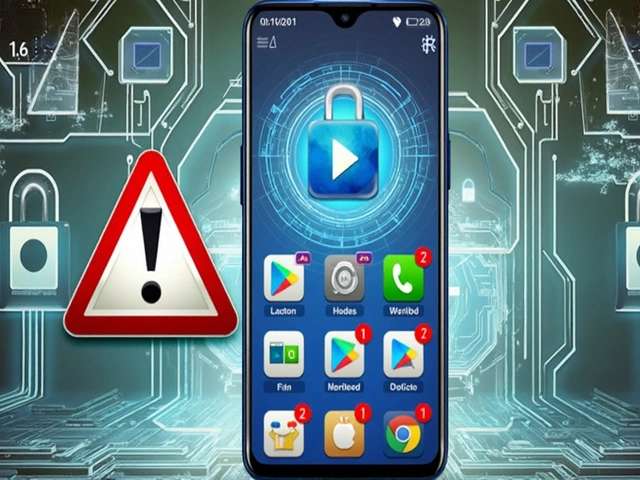Google Play Store Purge: 331 Malicious Apps Removed After Massive Data Theft Campaign

Google Play Store Hit by Massive Malware Cleanup
Imagine downloading an app to track your morning jog, scan a QR code, or just spice up your wallpaper—only to discover it’s silently sneaking off with your private info. That’s exactly what happened on a huge scale, as Google took down 331 malicious apps from the Play Store after researchers flagged them as part of a massive fraud and data theft operation.
These apps were anything but rare. Over 60 million downloads add up to millions of people unwittingly handing over private data and being exposed to relentless ad fraud. Most folks just saw harmless fitness trackers or QR scanners, but under the hood, these apps were built for one purpose: attack. The scheme, codenamed ‘Vapor’ by security experts at IAS Threat Lab and Bitdefender, went to great lengths to stay hidden. Some apps disguised themselves as Google Voice or other trusted tools, went invisible in phone settings, and even blocked your ability to close them by hijacking navigation buttons with aggressive full-screen ads.
The real trouble kicked off in the background, with these apps sending out more than 200 million fake ad requests every day. This not only raked in money for the scammers but also cluttered up the digital ad ecosystem with jumbled, fraudulent data. The crooks behind these apps didn’t stop there. They sent fake login screens for popular sites like Facebook and YouTube to trick people into giving away their usernames, passwords, and sometimes even credit card numbers. Once a user took the bait, the hackers could sweep through personal data at will.
Why These Apps Slipped Through the Cracks
Android 13, Google’s latest security update, was supposed to block a lot of these shady moves, but the hackers behind Vapor found loopholes. They changed app names after installation, buried themselves in system folders, and mimicked real app icons. Popular examples splashed across this list of dangerous downloads included AquaTracker and Scan Hawk, both surging past a million installs before the crackdown.
Government regulations and app store rules are one thing, but the reality is that scammers are getting harder to spot. Even during the last sweep by researchers, 15 Vapor-connected apps were still hanging out on the Play Store, waiting to be found and deleted. That doesn’t leave Android users feeling very safe.
Google isn’t taking this lightly. The company quickly removed all known offending apps and triggered Play Protect to shut down harmful installations already out in the wild. That’s a big step, but it’s not a complete shield. New threats pop up all the time, and security experts say vigilance is now more important than ever.
- Keep your Android OS up to date—it’s the fastest way to patch new security holes.
- Regularly scan your installed apps. If anything looks odd or you spot an unfamiliar logo or app name, ditch it.
- If you ever see popups or login pages that seem fishy, don’t enter your info. Back out and double-check the app’s legitimacy before continuing.
The rise and fall of the Vapor campaign is a reminder: downloading random apps—even those that look innocent—can open the door to major privacy invasions, especially if no one’s watching closely. Tech companies can plug the leaks, but in the end, users have to stay on guard too.
